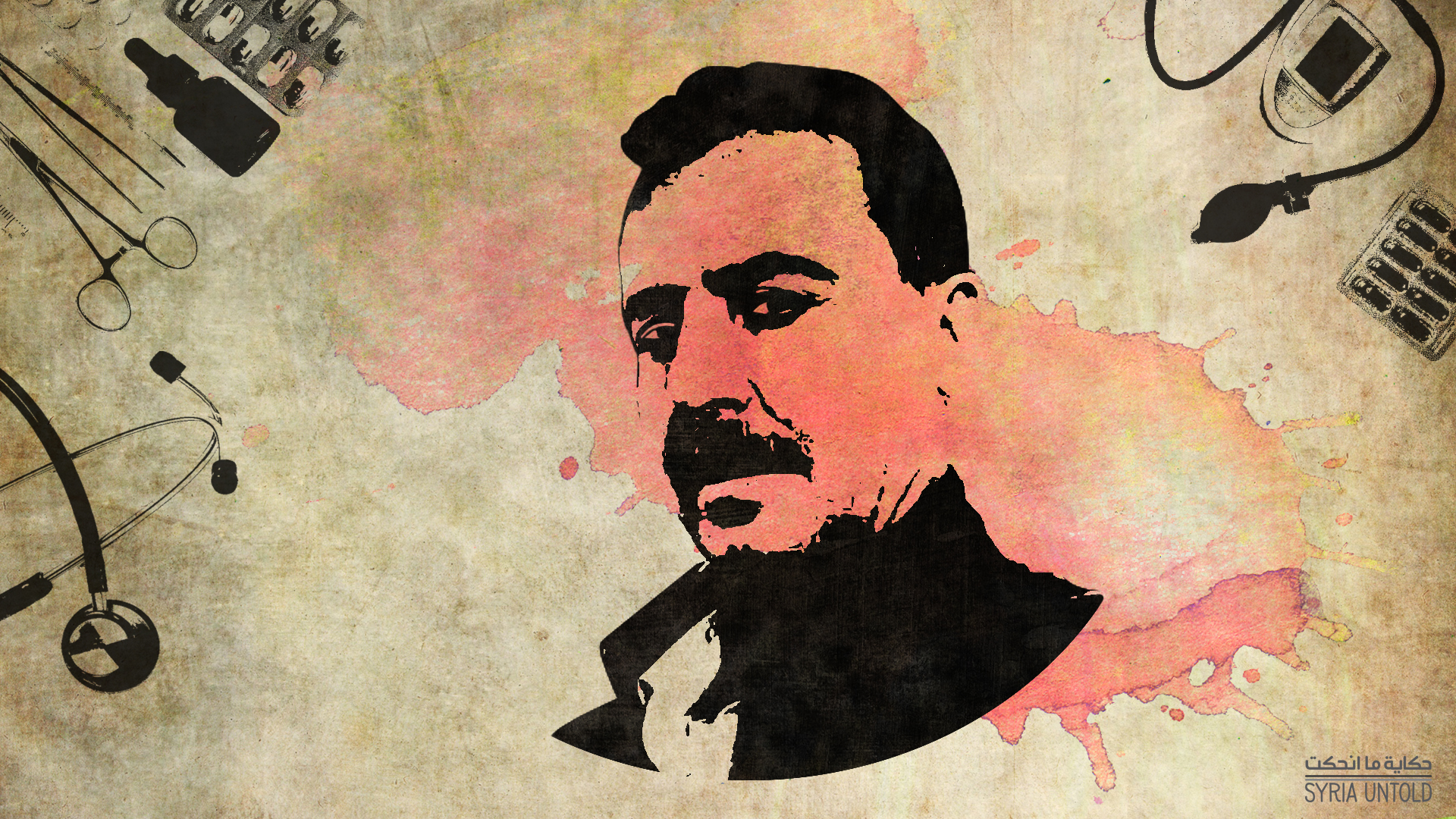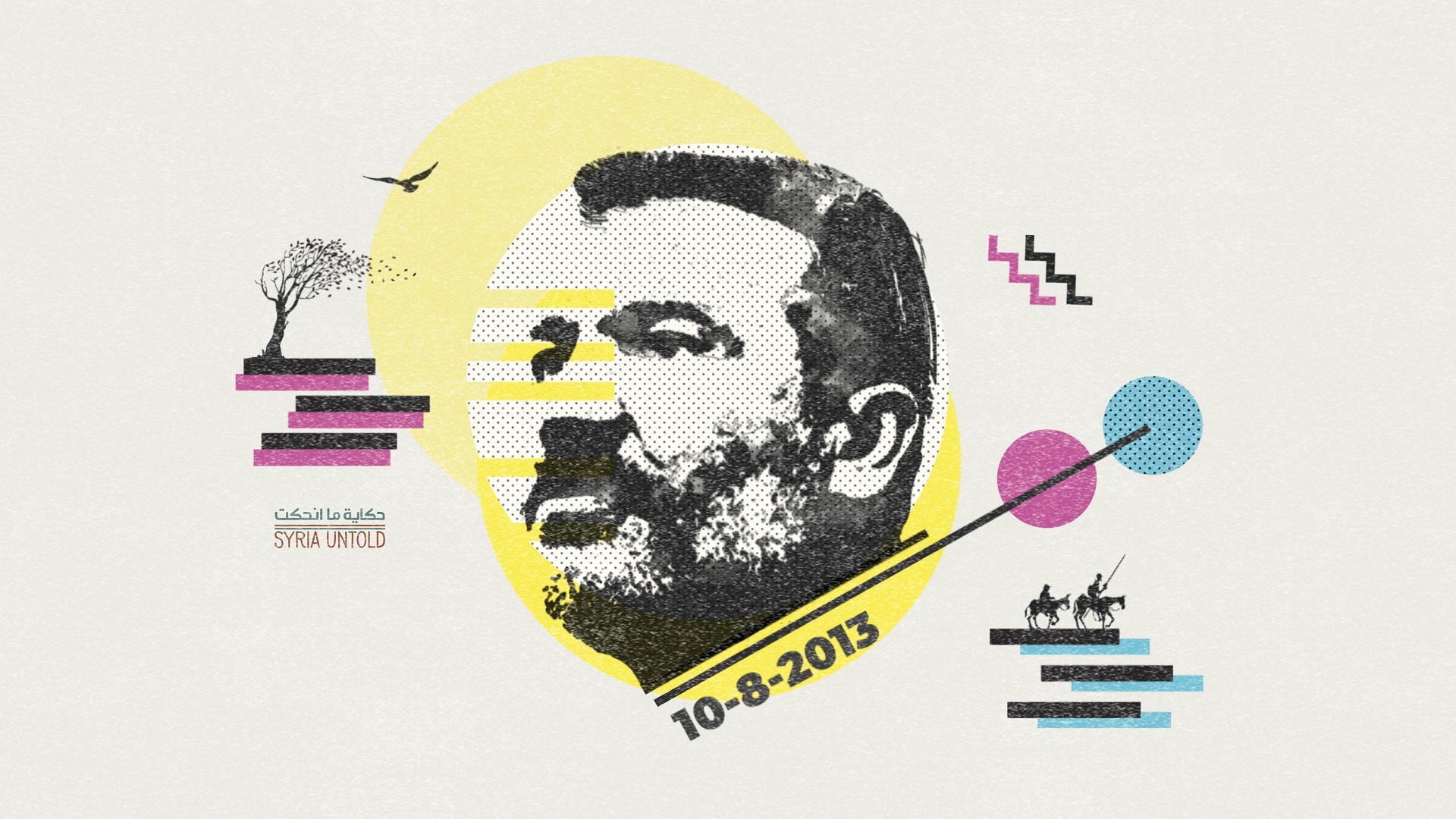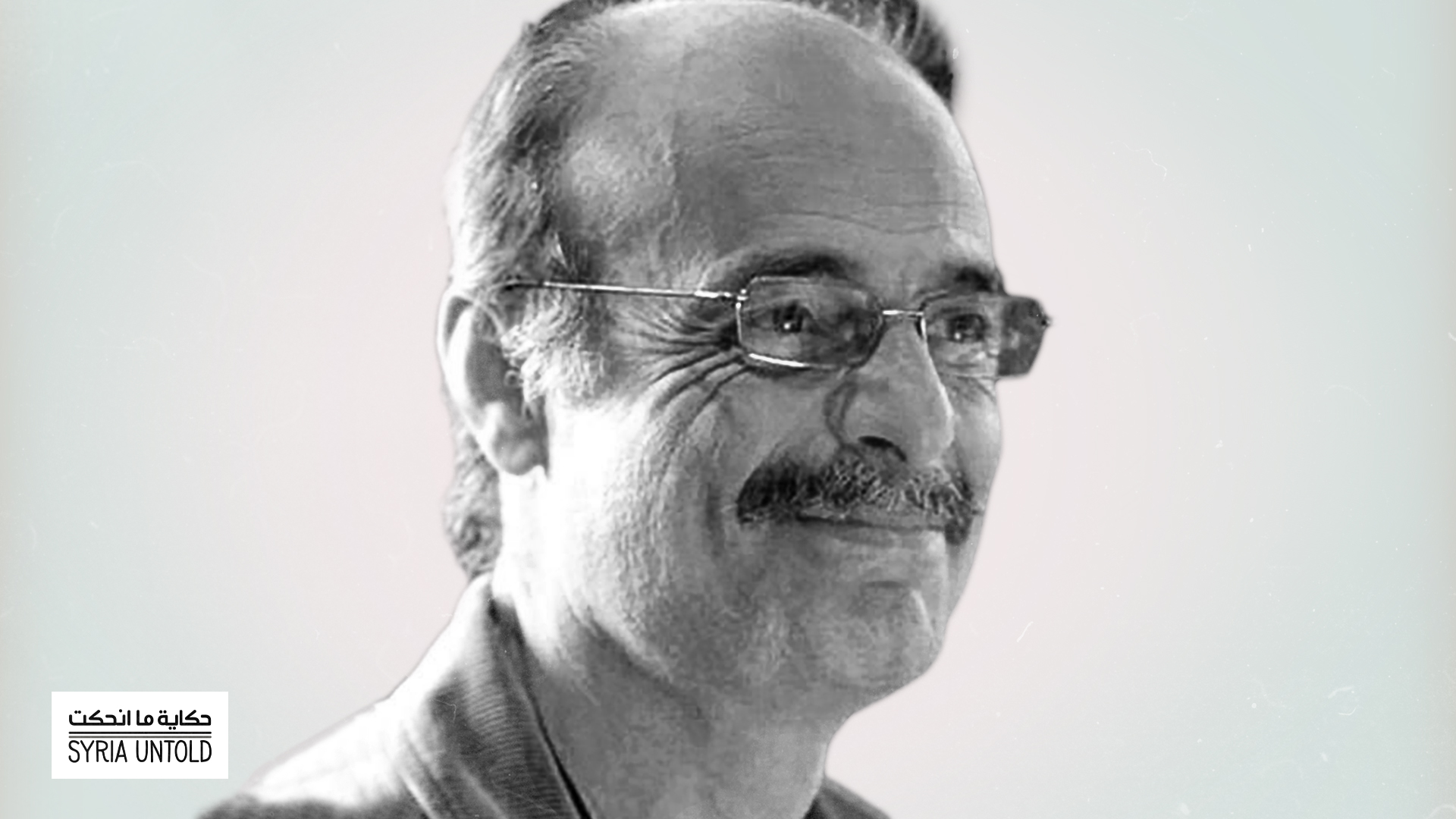SyriaUntold originally published this article in Arabic here.
“I have spent my entire life learning, and I am still a student of knowledge. Beyond that, I divide my energy between three fields: research, education and civic work. My goal in research is to contribute to the knowledge of who we are as people from this region, and why our situation has come to what it is, in terms of delays and loss. My goal in education is to transfer the knowledge I have gained to the widest possible segment of my country’s youth. My goal in civic work is to spread the culture of citizenship, with its democracy, secularism and critical thinking.”
-Hassan Abbas, from an interview with online magazine Romman
I started young, writing little articles, literary texts and something I called poetry. Ever since I was 18 years old, I would publish them in different newspapers and websites. At 23, I told myself it was time to take a bigger step.
I had just left Syria for the second time. So I wrote an article about life in Damascus and East Ghouta, and sent it via Messenger to Hazem Saghieh, the editor-in-chief of the Al-Hayat newspaper at the time. They published the story two days later without changing a single letter, a rare feat as far as I know, as Al-Hayat editors are known for doing as they please with the articles that reach their inboxes.
The article opened a wide door for me. After that, I was able to publish in big Arab newspapers on commission: Al-Hayat, As-Safir, An-Nahar, Al-Araby Al-Jadeed… All this because of the encouragement of Hazem Saghieh, who believed in a young man who had just emerged from the grip of Assad’s Syria.
I was in my 20s, a writer for respected newspapers and an activist on the Syrian civil society scene in Beirut. I was attending most of the cultural, literary and political activities related to Syria.
Abbas’ work had a greater impact than any Ministry of Culture could in an authoritarian country like ours.
Outside of one such workshop—I forget what for—in a Beirut hotel, Dr. Hassan Abbas and I sat at a table to drink coffee. At the time, I was working for a small Syrian NGO I founded with some close friends called SRDH. We were planning joint activities with the Citizenship League, which was headed by Abbas.
He told me about his organization’s activities, that they had released the first book in their series, “Syrian Testimonies.” He said they enjoyed publishing books by young writers like me, and that he liked my writing, that when he came across my articles they made him happy.
Months later, I prepared a draft of my first book and sent it to him. It then went through its life cycle, from first read to approval, editing and design, until it was finally released. That is how my first book, Tales of This Time, saw the light of day as part of the “Syrian Testimonies” series, thanks to Hassan Abbas, who treated me with respect, as a peer, from the time we first met.
A forced disappearance in Raqqa, and the empty spaces left behind
09 December 2020
This was the Hassan Abbas I knew. He introduced me to the world of writers and made me a writer, too, with my own published book. He introduced me to the publishing world and set my feet on this long path. He was also a mentor to me, albeit indirectly. Like many other people from my generation who met Abbas and were his contemporaries, I learned humility and the importance of fighting for society, working for others, rejection of tyranny and love of culture.
He was unmatched as a teacher, and, before everything else, a friend to all of us despite the great age difference. He became friends with all who met him, and almost certainly left a mark on the lives of everyone who interacted with him. A gentleman in every meaning of the word; if we were able to hand over someone to knighthood, he’d be among the few who actually deserve it, for what did to serve Syrian culture and Syrians themselves without tiring of the task.
It is difficult for me to write this sentence, but I must: Writer, researcher and civil activist Hassan Abbas passed away on Sunday.
If we had a country that respected us, one that respected its citizens and appreciated its intellectuals and cultural standing, it would have flown its flags for many long days and declared public mourning for the passing of someone like Hassan Abbas, who spent years fighting tyranny however he could. He spent all his effort to spread culture, and made an impact on the younger generations—and I really mean the younger generations, especially my own.
He spread the culture of cinema when Syria was still the kingdom of silence, and helped establish the Cinema Club in the French Cultural Center in Damascus. Some of the city’s youth, myself included, found a breathing space there, a window to another world we didn’t know, through the films shown by the club and the discussions that followed.
He spread the culture of citizenship at a time when Syria was dying under sectarianism and people were being killed for their identities at checkpoints and in Assad’s prisons. He contributed to founding the Citizenship League, and was a father of Syrian culture in Beirut. He revived his cinema club, published books by young authors and held workshops, discussions and other activities that failed to cease during his years in Beirut. This was all in addition to his work in cultural activism and education.
Abbas’ work had a greater impact than any Ministry of Culture could in an authoritarian country like ours. Of course, he was far more profound and influential, as his work flowed from the heart, woven with a rare tenderness and kindness, and a smile that emitted reassurance and optimism to those who spoke with him.
In an old interview, Abbas said: “The situation we’ve arrived at today is a sad one, and I don’t want to sugarcoat death. We are losing our friends, our homes and our land. Our youth are losing their future and their history. When I find that everything is pushing towards pessimism, I ask myself: what is the meaning of my existence in life, if everything I see is black? Is it not better to die? And yet, I don’t want to die, because we must build hope. In my opinion, pessimism is something natural, while optimism is voluntary. And though I am a little pessimistic, I am still someone who creates optimism.”
Hassan Abbas, thank you for all that you have given us, and I promise you that what you have planted in us will not die.








